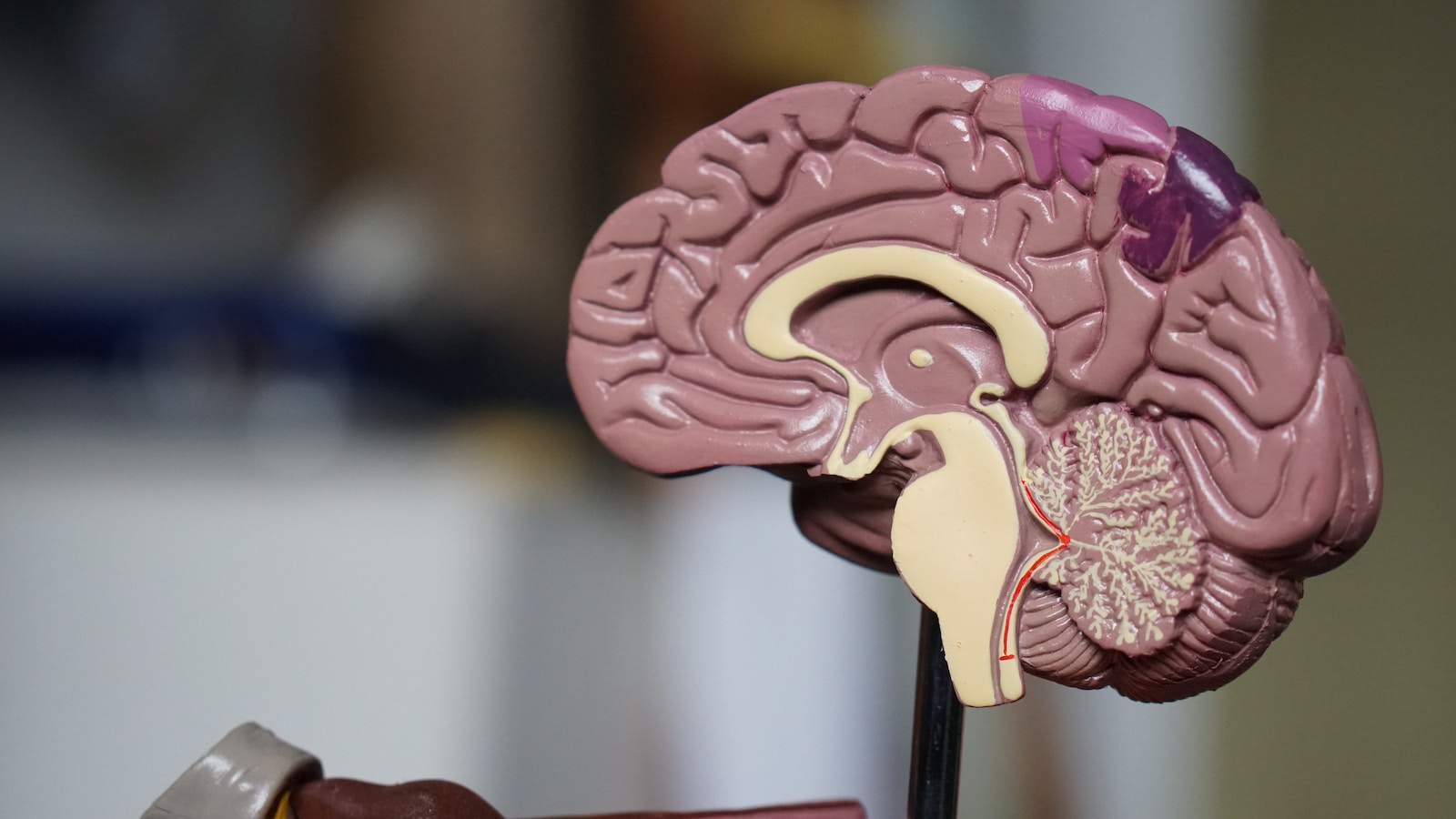If you’re anything like me, your journey to understanding gut health has started with a few uncomfortable symptoms, curiosity, or perhaps a desire to improve your overall well-being. It didn’t take long for me to realize that a healthy gut is much more than just about avoiding stomach upset; it’s the cornerstone of our entire health, affecting everything from our mood to our immune system.
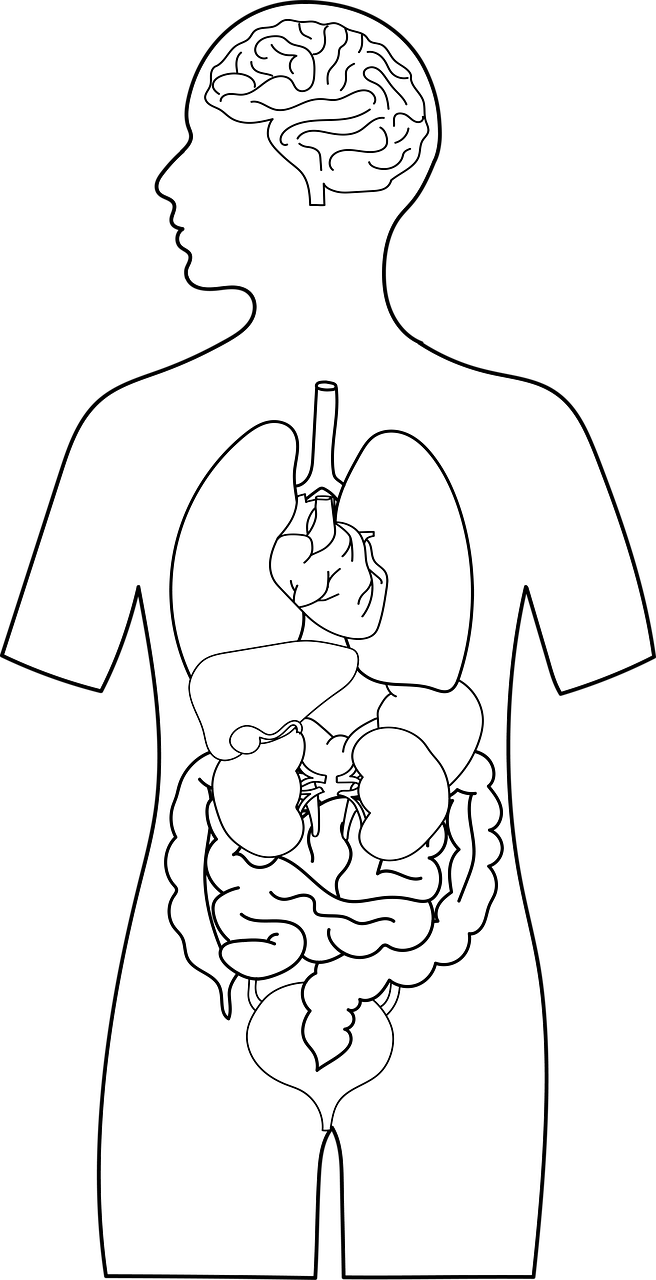
That’s why I made this guide—to help you understand how your belly works and how it affects your health.
Through this guide, I’ll take you through the common gut-related issues that many of us face, perhaps more often than we’d like to admit. But more importantly, I’ll share practical insights on “what to take from gut health” to genuinely enhance your quality of life. We’ll look out for the encouraging “signs your gut is healing” and explore “how to improve your gut health naturally” through simple, life-affirming changes.
My hope is that by sharing this knowledge and these tips, you’ll feel empowered to take control of your gut health, just as I did. Whether you’re just beginning to understand the importance of gut health or you’re on the lookout for ways to maintain and improve it, I’m here to guide you with straightforward, practical advice that you can incorporate into your daily routine. Let’s embark on this journey to better health together.
However, in order for you to have a full gut health understanding we must start from the beginning… the digestive system.
1. Digestive System
Gut health is closely tied to our digestive system, which is a complex network crucial for our well-being. Knowing how it works is key to improving gut health. This part explains where digestion starts, describes the main organs involved, and guides you through the digestion process, including its seven steps.
The digestive system’s job is to turn the food we eat into nutrients that give us energy, help us grow, and repair cells. Important parts of this system include the mouth, esophagus, stomach, small intestine, large intestine, and other organs like the liver, pancreas, and gallbladder.
Where Does Digestion Begin?
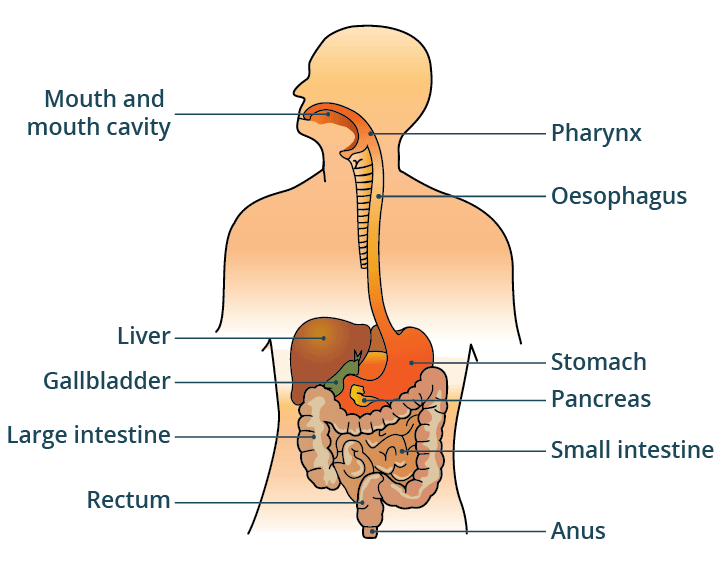
Digestion begins in the mouth, where the process of breaking down food kicks off with chewing and the introduction of saliva. This marks the first step of digestion, emphasizing the importance of thoroughly chewing food to aid the rest of the digestive process.
The role of each organ:
- Mouth. Breaks down food physically through chewing and chemically with saliva, starting the breakdown of starches.
- Esophagus. Transports chewed food to the stomach.
- Stomach. Further, it breaks down food using stomach acids, turning it into a semi-liquid substance called chyme.
- Small Intestine. The most extended part of the digestive system is where most of the nutrients are absorbed into the bloodstream.
- Large Intestine. Absorbs water and vitamins while converting digested food into stool.
- Liver, Pancreas, and Gallbladder. These organs produce enzymes and bile to digest fats, neutralize stomach acid, and more.
What are the 7 steps of digestion?
- Ingestion. The intake of food.
- Propulsion. Moving food through the digestive tract, starting with swallowing and continuing with the muscular movements of peristalsis.
- Mechanical Digestion. The physical breakdown of food, such as chewing and the churning in the stomach.
- Chemical Digestion. The breakdown of food by enzymes and acids in the stomach and small intestine.
- Absorption. Nutrients from the digested food are absorbed in the small intestine.
- Secretion. The release of digestive juices is necessary to break down food.
- Excretion. Removal of indigestible substances from the body as feces.

How Can I Improve My Gut Digestive Health?
Improving your gut digestive health involves a combination of dietary changes, lifestyle modifications, and possibly supplements. Here are practical tips:
- Eat a diverse range of foods rich in fiber to encourage a healthy digestive system.
- Stay hydrated by drinking plenty of water.
- Incorporate probiotics into your diet to support a healthy gut microbiome.
- Limit foods high in fat and added sugars, which can slow the digestive process.
- Exercise regularly to help keep food moving through your digestive system.
2. Gut Microbiome
In the quest to understand gut health, the gut microbiome stands out as a critical player. This hidden ecosystem within our bodies is not just a passive resident; it plays an active role in our health, affecting everything from our digestion to our immune system and even our mood.
What is the Gut Microbiome?
The gut microbiome refers to the trillions of microorganisms, including bacteria, viruses, fungi, and other life forms, that reside in our digestive tracts, primarily in the large intestine. These microorganisms are not mere freeloaders; they perform critical functions that our bodies need to function optimally. The composition of one’s gut microbiome is unique, much like a fingerprint, influenced by diet, lifestyle, and even the way we were born.
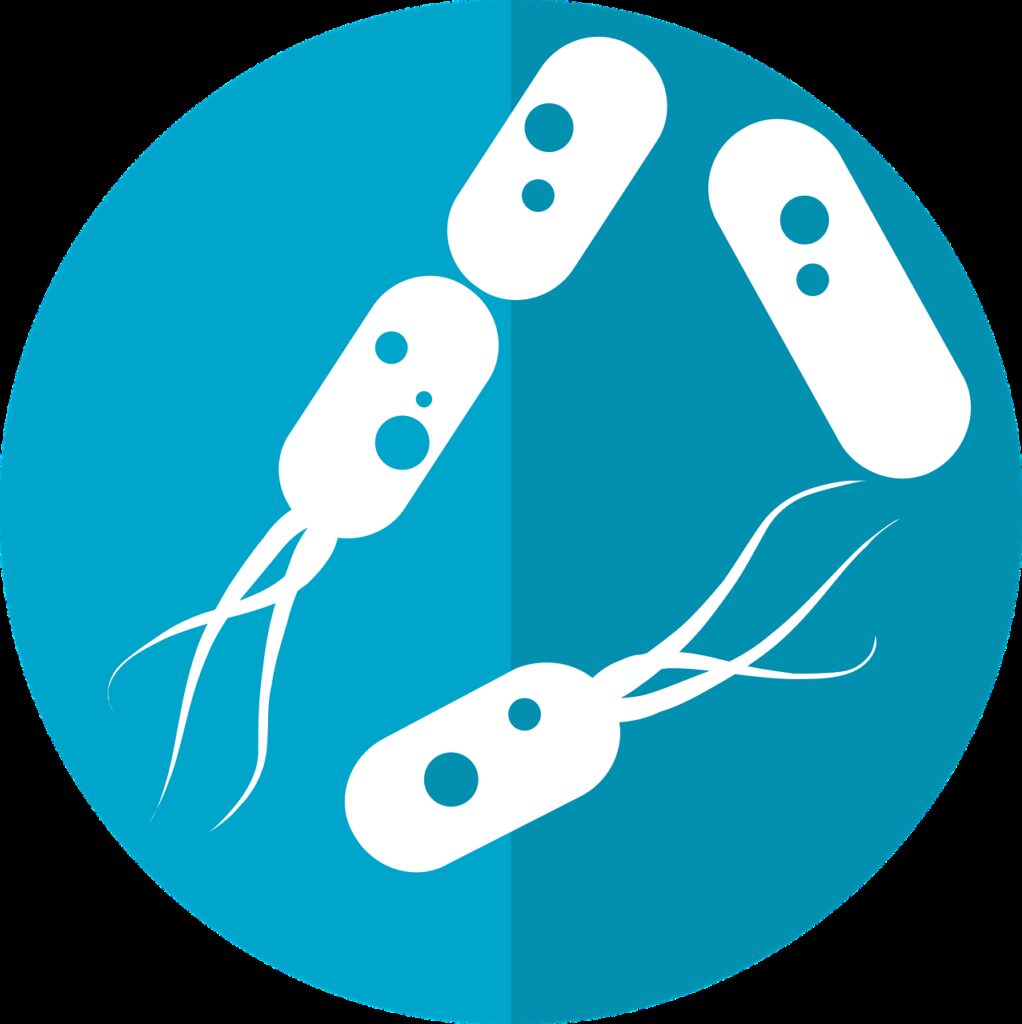
Did you know?
The gut microbiome is integral to many aspects of our health. It assists in digesting food, especially those components that the stomach and small intestine have not been able to break down. It plays a crucial role in synthesizing certain vitamins (like B vitamins and vitamin K) and is essential for a healthy immune system. Additionally, there’s a strong link between the gut microbiome and the brain, often referred to as the “gut-brain axis,” influencing our mood, stress levels, and even behaviors.
FAQ: Understanding Gut Health
Balancing Beneficial vs. Harmful Bacteria
A healthy gut microbiome is all about balance. While the presence of harmful bacteria is normal, issues arise when these outweigh the beneficial bacteria. An imbalance can lead to digestive disorders, reduced immune function, and diseases such as obesity, diabetes, and inflammatory bowel disease (IBD). Thus, maintaining a balanced gut microbiome is essential for overall health.
How to Increase Good Bacteria in Gut Naturally
The microbiome diet focuses on eating foods that support the growth of beneficial bacteria and limit those that feed harmful bacteria. Here are practical tips on how to nourish your gut microbiome:
- Incorporate a Variety of Foods: Diverse diets promote a diverse microbiome. Include plenty of fruits, vegetables, legumes, and whole grains.
- Fermented Foods: Foods like yogurt, kefir, sauerkraut, and kimchi are rich in probiotics, which are beneficial bacteria.
- Prebiotic Foods: These are foods that feed the good bacteria in your gut. Examples include garlic, onions, bananas, oats, and apples.
- Limit Sugar and Artificial Sweeteners: High amounts of sugar can feed harmful bacteria and yeast, while some artificial sweeteners have been shown to negatively impact the gut microbiome.
- Stay Hydrated: Drinking plenty of water has been shown to have a beneficial effect on the mucosal lining of the intestines, as well as on the balance of good bacteria in the gut.
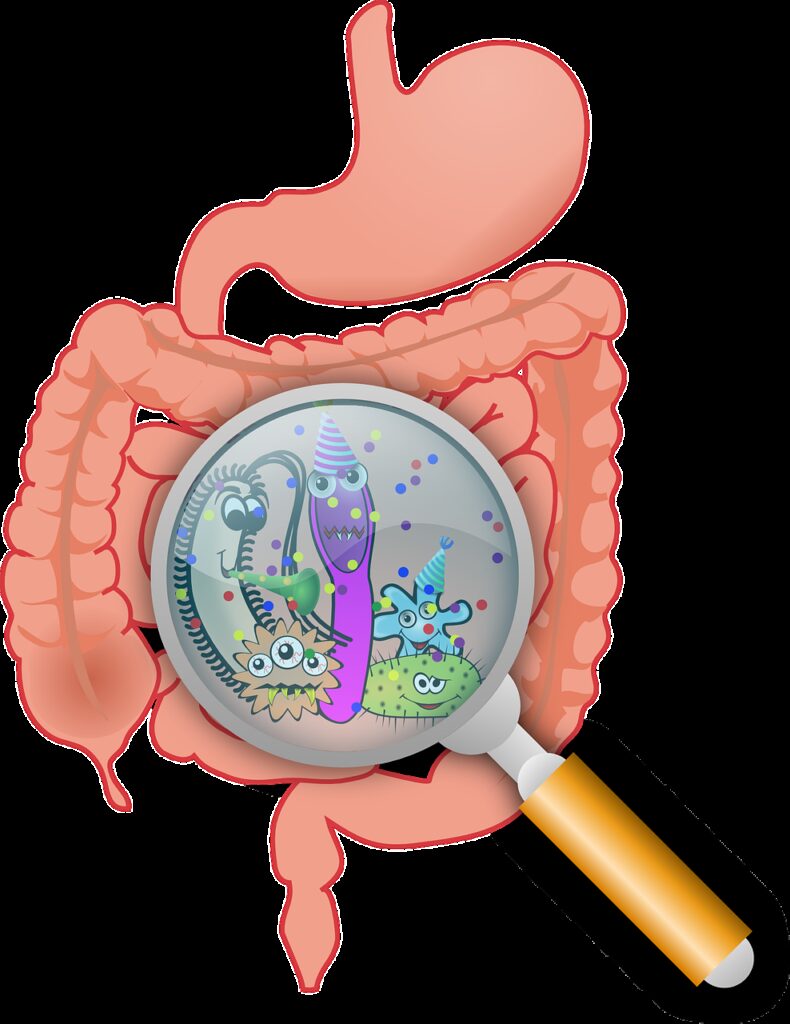
What Foods are Good for the Gut Microbiome?
Foods that are particularly beneficial for the gut microbiome include those high in fiber, like fruits, vegetables, and whole grains; fermented foods, which introduce more probiotics into your system; and prebiotic-rich foods, which help nourish and support the growth of beneficial bacteria.
3. Common Gut Health Disorders
Gut health disorders can significantly impact one’s quality of life, leading to discomfort, pain, and numerous health issues.
Understanding these conditions—such as Irritable Bowel Syndrome (IBS), Small Intestinal Bacterial Overgrowth (SIBO), and Leaky Gut Syndrome—is the first step toward managing or alleviating their symptoms. This section will explore the symptoms, potential causes, and management strategies for these common disorders, incorporating essential SEO keywords to guide our discussion.
Irritable Bowel Syndrome (IBS)
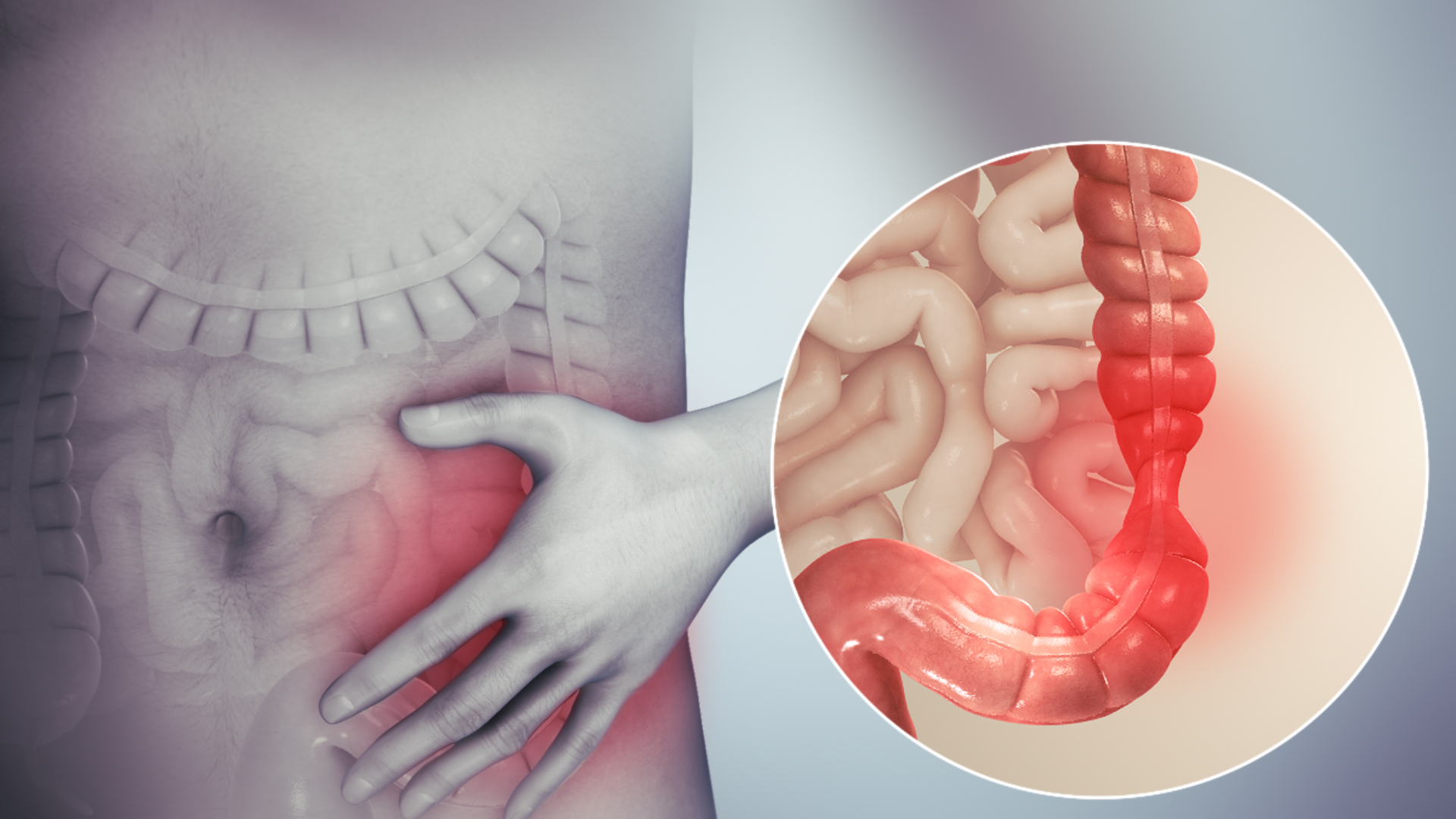
Symptoms. IBS is characterized by a group of symptoms that include abdominal pain, bloating, and changes in the pattern of bowel movements (diarrhea, constipation, or both).
Potential Causes. While the exact cause of IBS is unknown, factors such as gut microbiota imbalances, intestinal inflammation, and abnormalities in the nervous system communication with the digestive tract are believed to play roles.
Management Strategies. Managing IBS often involves dietary changes, such as reducing the intake of foods that trigger symptoms. Increasing fiber intake, managing stress, and, in some cases, taking medications prescribed by a healthcare professional can also help manage IBS symptoms.
Small Intestinal Bacterial Overgrowth (SIBO)
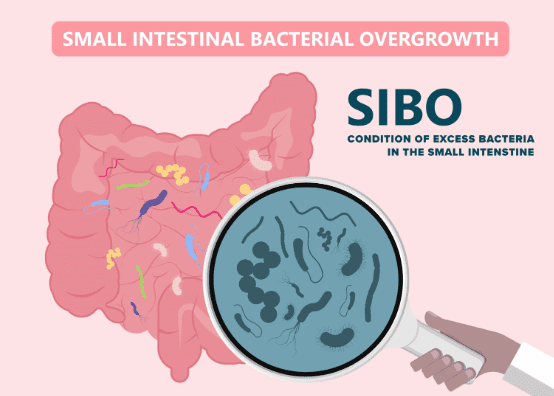
What It Is. SIBO occurs when there is an abnormal increase in the number of bacteria in the small intestine, particularly types that are not commonly found in that part of the digestive system.
Causes. It can be caused by slow transit times, anatomical abnormalities of the small intestine, reduced gastric acid secretion, and impaired immune function.
Symptoms. Common symptoms include bloating, diarrhea, abdominal pain, and nutrient malabsorption, leading to deficiencies.
Treatment Options: Treatment often involves antibiotics to reduce bacterial overgrowth, dietary modifications to starve the excess bacteria, and sometimes probiotics to restore a healthy balance of gut bacteria.
Leaky Gut Syndrome

Explanation. Leaky Gut Syndrome, though not universally recognized as a medical diagnosis, refers to increased intestinal permeability where the lining of the small intestine becomes damaged, allowing undigested food particles, toxic waste products, and bacteria to “leak” through into the bloodstream.
Causes. Possible causes include chronic inflammation, food sensitivities, excessive alcohol consumption, and the use of NSAIDs.
Signs. Symptoms can include chronic diarrhea, constipation, bloating, fatigue, nutritional deficiencies, and skin problems such as eczema.
How It Affects Health. This condition is believed to trigger immune responses leading to inflammatory and autoimmune diseases.

FAQ: Addressing Gut Health Disorders
How to Starve Bad Gut Bacteria.
Incorporating a diet low in sugar and processed foods while high in fiber can help reduce bad bacteria in the gut. Eating fermented foods and taking prebiotic and probiotic supplements can also support a healthy gut microbiome.
Early Signs of Gastrointestinal Disease.
Be alert to changes in bowel habits, unexplained weight loss, persistent abdominal pain, and blood in the stool, as these can be early signs of gastrointestinal disease.
List of Gastrointestinal Diseases.
Beyond IBS, SIBO, and Leaky Gut Syndrome, this list includes Crohn’s disease, ulcerative colitis, gastroesophageal reflux disease (GERD), and celiac disease.
What Causes Digestive Issues?
Factors range from diet and lifestyle to infections, stress, and genetic predispositions.
How to Fix Bad Gut Health.
Improving gut health involves a comprehensive approach, including diet changes, stress management, adequate sleep, regular exercise, and avoiding unnecessary antibiotics.
Stomach Problems After Eating.
If you experience recurrent stomach problems after eating, consider keeping a food diary to identify potential triggers and discuss them with a healthcare provider.
4. Gut-Brain Axis: A Two-Way Street
The intriguing link between our gut health and mental health, known as the gut-brain axis, has gained considerable attention in the scientific community. This bidirectional communication pathway not only highlights how our digestive system influences brain function but also how our brain impacts gut health.
Therefore, understanding this connection can offer profound insights into improving both cognitive function and emotional well-being. Let’s explore the gut-brain axis, its impact on anxiety, disorders associated with this connection, and how nurturing our gut can be a pathway to healing our brain.
Read more: Why Gut is Considered as Second Brain
The Connection Between Gut Health and Mental Health
The gut-brain axis refers to the complex network of interactions between the gastrointestinal tract and the central nervous system. This connection is facilitated by various pathways, including the vagus nerve, immune system, and hormonal and neural mechanisms. These pathways communicate critical information about the gut’s state, influencing mood, cognitive functions, and stress responses.
Read more: How Gut Health Affects Mental Health?
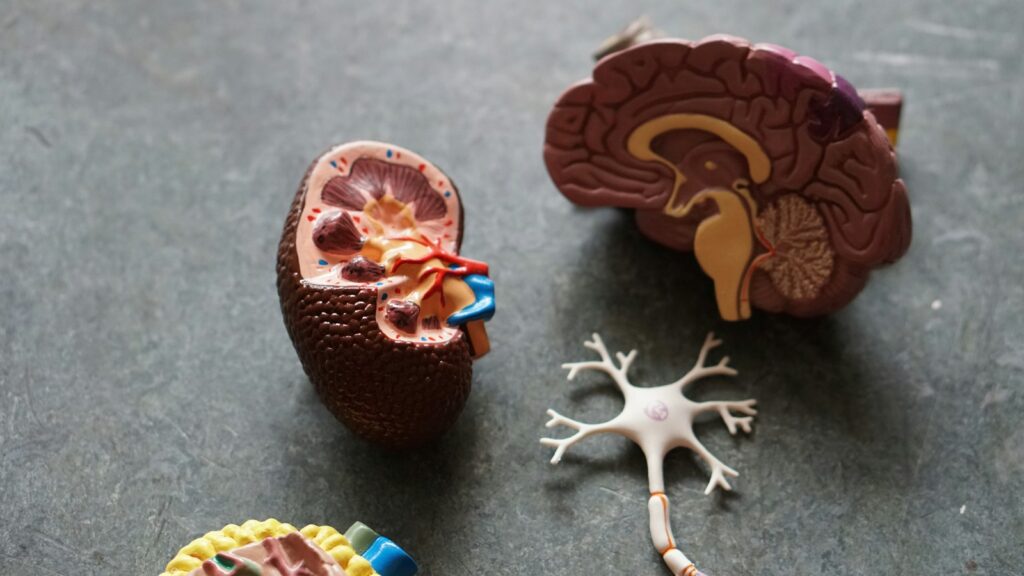
Gut Health and Anxiety
The relationship between the brain-gut connection and anxiety illustrates how our digestive system’s state can directly affect our mental health. Studies have shown that individuals with gastrointestinal disorders often experience higher rates of anxiety and depression. Conversely, stress and anxiety can exacerbate gastrointestinal symptoms, creating a cyclical effect that can impact one’s quality of life.
Heal the Gut, Heal the Brain
Improving gut health can have significant benefits for the brain, including enhanced cognitive function and emotional well-being. A healthy, balanced gut microbiome can improve the production and regulation of key neurotransmitters and hormones, such as serotonin and dopamine, which play crucial roles in mood regulation.
Gut-Brain Axis Disorders
Several disorders are associated with imbalances in the gut-brain axis, including irritable bowel syndrome (IBS), anxiety, depression, and even neurodegenerative diseases such as Parkinson’s and Alzheimer’s. Addressing gut health can be a crucial component in managing these conditions.
Gut Bacteria and Mental Health
The composition of gut bacteria has a profound impact on mental health. Certain strains of gut bacteria can produce neurotransmitters, while others can influence the immune response, affecting inflammation levels, which are linked to mood disorders.
Practical Advice for Improving Gut-Brain Health
- Diversify Your Diet. Consuming a variety of foods can promote a diverse and healthy microbiome. Focus on fiber-rich foods, fermented foods, and omega-3 fats.
- Manage Stress. Since stress can negatively affect your gut microbiome, engaging in stress-reduction techniques such as mindfulness, meditation, and regular physical activity is essential.
- Sleep Well. Adequate sleep is crucial for maintaining a healthy gut-brain axis. Try to establish a regular sleep schedule and create a relaxing bedtime routine.
- Consider Probiotics and Prebiotics. These supplements can help improve the balance of gut bacteria, potentially benefiting mental health. However, it’s important to consult with a healthcare provider to determine the best approach for your needs.
5. Gut Health and the Immune System
The intricate relationship between gut health and the immune system is a cornerstone of our overall well-being.
With the majority of the immune system residing in the gut, the microbiome plays a pivotal role in shaping our body’s defense mechanisms against pathogens.
This section explores how the gut microbiome influences the immune system and provides practical tips for supporting immune health through gut health.
The Influence of the Gut Microbiome on the Immune System
The gut microbiome consists of trillions of microorganisms that coexist within the gastrointestinal tract.
These microorganisms have a symbiotic relationship with the host, contributing to various physiological functions, including the development and function of the immune system.
The microbiome helps educate immune cells, distinguishing between harmful invaders and benign molecules, thereby preventing overreaction to non-threatening substances. This training helps reduce the risk of inflammatory diseases and supports an effective immune response.
Improving Your Gut Health to Boost Immunity
- Diversify Your Diet. Consuming a wide range of gut health foods, especially those rich in fiber, can help diversify your gut bacteria. Fruits, vegetables, legumes, and whole grains provide the necessary substrates (prebiotics) that beneficial bacteria need to thrive.
- Incorporate Fermented Foods. Fermented foods like yogurt, kefir, sauerkraut, and kimchi are rich in probiotics, which can replenish and diversify the gut microbiota, enhancing immune function.
- Stay Hydrated. Adequate hydration is crucial for maintaining the integrity of the intestinal barrier, which in turn supports a healthy immune response.
- Restoring Flora After Antibiotics. Antibiotics can disrupt the gut microbiome. After a course of antibiotics, it’s vital to rebuild this ecosystem. Consuming probiotic and prebiotic-rich foods can help restore the balance of gut bacteria.
- Limit Processed Foods and Sugars. Diets high in processed foods and sugars can promote the growth of harmful bacteria and yeasts in the gut, which can compromise immune function.
- Regular Exercise. Regular, moderate exercise can help improve gut health and, consequently, immune function by enhancing the diversity of the gut microbiome.

The Importance of Gut Health in Immune Function
The health of our gut microbiome is intrinsically linked to the effectiveness of our immune system. A balanced gut microbiota not only aids in defending against pathogenic invasion but also helps in the production of essential vitamins that contribute to the strength of our immune response.
Practical Tips for Supporting Immune Health Through Gut Health
- Mindful Eating. Pay attention to your body’s reactions to different foods and adjust your diet accordingly to support gut and immune health.
- Supplementation. Consider supplements, especially after antibiotic use, to help restore and maintain a healthy gut microbiome. However, consult with a healthcare professional before starting any new supplement regimen.
- Stress Management. Chronic stress can negatively affect gut health and, by extension, immune function. Incorporating stress-reduction techniques like meditation, yoga, or deep breathing exercises can be beneficial.
6. Digestive Health Tips: How to Maintain a Healthy Gut
Maintaining a healthy gut is foundational to our overall health and well-being, influencing everything from our immune system to mental health.
As we delve deeper into the relationship between the microbiome and human health, it becomes clear that our gut health is a critical component of the future of health care, including the promising field of microbiome therapy.
Dietary Advice for a Healthy Gut
- High-Fiber Foods. A high-fiber diet is crucial for gut health. Fiber feeds the beneficial bacteria in our gut, promoting diversity and function. Incorporate a variety of fruits, vegetables, whole grains, legumes, nuts, and seeds into your diet. Examples include berries, broccoli, quinoa, lentils, and almonds.
- Fermented Foods. Fermented foods are a rich source of probiotics, which are beneficial bacteria that contribute to the health and balance of our gut microbiome. Include foods like yogurt, kefir, sauerkraut, kimchi, and kombucha in your diet to boost your intake of probiotics.
- Hydration. Drinking plenty of water is essential for digestive health. Water aids in digestion and helps maintain the mucosal lining of the intestines, supporting a healthy gut barrier. Aim for at least 8 glasses of water a day, or more if you’re active or live in a hot climate.

Lifestyle Changes to Support Gut Health
- Exercise Regularly. Physical activity can enhance the diversity of your gut microbiome, contributing to overall gut health. Aim for at least 30 minutes of moderate exercise most days of the week. Activities can include walking, cycling, swimming, or any other exercise that you enjoy.
- Stress Management. Chronic stress can negatively impact gut health, leading to issues like inflammation and a disrupted microbiome. Implement stress-reduction techniques such as mindfulness meditation, yoga, deep breathing exercises, or spending time in nature to help manage stress levels.
- Avoiding Antibiotics and NSAIDs When Unnecessary. While antibiotics can be life-saving, unnecessary use can disrupt the gut microbiome, killing off beneficial bacteria along with harmful ones. Similarly, regular use of NSAIDs (non-steroidal anti-inflammatory drugs) can damage the gut lining. Use these medications only when prescribed by a healthcare professional and explore alternative pain management strategies when appropriate.
Wrap up: Understanding gut health
Maintaining gut health is crucial for overall well-being, influencing our immune system, mental health, and more. Emphasizing a diet rich in high-fiber and fermented foods, proper hydration, and adopting lifestyle habits like regular exercise and stress management can significantly enhance gut health.





